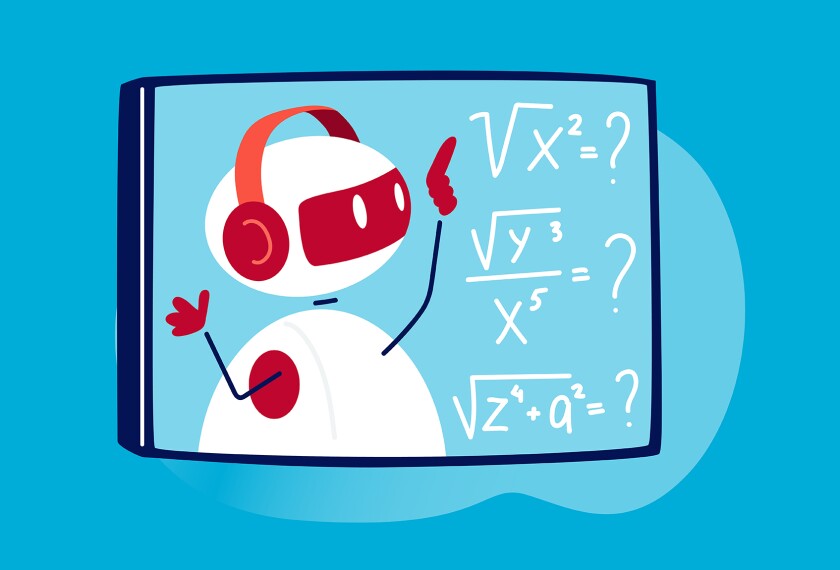There’s been a lot of ink spilled over how ChatGPT will make it easier for students to cheat. But a new survey shows that many teachers have a positive view of the artificial intelligence technology and they’re even using it more often than their students are.
Fifty-one percent of teachers say they have used ChatGPT, with 40 percent of teachers saying they use it weekly and 10 percent reporting they use it almost every day, according to a nationally representative survey of more than 1,000 K-12 teachers and 1,000 students by the .
By comparison, only a third of students ages 12-17 reported using ChatGPT for school, and just 22 percent said they use it on a weekly basis or more.
When asked if “ChatGPT will likely have legitimate educational uses we cannot ignore,” 59 percent of teachers agreed, while a quarter said they believe “ChatGPT will likely only be useful for students to cheat.”
Teachers reported in the survey that they are using the AI program for lesson planning, generating creative ideas for their classes, and putting together background knowledge for their lessons.
For example, a teacher in Utah told Education Week that he used ChatGPT to generate multiple examples of a single argument using different tones, estimating the chatbot saved him more than an hour’s worth of work. Teachers have also used the program to give students feedback on assignments, build rubrics, compose emails to parents, and write letters of recommendation.
ChatGPT’s ability to perform all these functions got mixed reviews from teachers, when Education Week asked a group of them to evaluate the technology. These teachers were most optimistic about the program’s capabilities to save them time in responding to emails and creating rubrics, but less impressed by the lesson plan ChatGPT generated or its ability to grade an essay.
Many teachers more likely to permit, than prohibit, students’ use of ChatGPT
Of the teachers using ChatGPT, the Impact Research/Walton Foundation survey found that 88 percent gave the AI program a good review, saying it has had a positive impact on instruction. Seventy-nine percent of students said the same thing.
Teachers report they have been much more likely to allow students to use ChatGPT than they have been to catch students using it without permission. Thirty-eight percent of teachers say they have given their students the green light to use the program, compared to 10 percent who say they have caught their students using ChatGPT without their permission.
Fifteen percent of students said they have used ChatGPT without their teachers’ consent.
Around three-quarters of teachers say that ChatGPT can help their students learn more and help them grow as teachers. Among students, 68 percent believe the program can help them become better students and 75 percent think it helps them learn faster.
But for those teachers concerned about students using ChatGPT to cheat on writing assignments, there are ways to stay one step ahead of them and AI, such as asking students to write about things ChatGPT won’t know about, such as themselves or an issue specific to their local community. Teachers can also require students to complete their assignments in class with pencil and paper.






